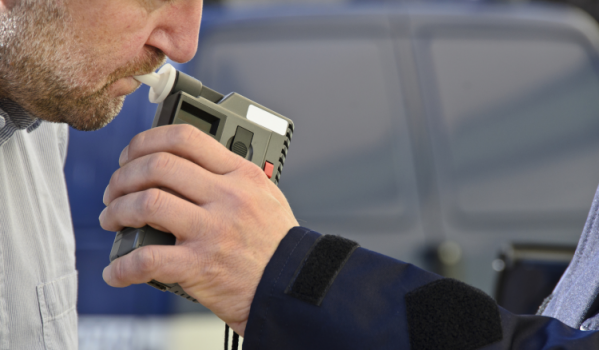In State v. Eileen Cassidy, (A-58-16/078390) (Decided November 13, 2018), the Supreme Court of New Jersey held that breath test results produced by Alcotest machines not calibrated using a NIST-traceable thermometer are inadmissible. The decision called into question thousands of convictions for driving while intoxicated (DWI).
Facts of State v. Eileen Cassidy
Since 2000, New Jersey has used the Alcotest, a Draeger Safety Diagnostics Inc. (Draeger) product, to conduct breath tests. In 2004, Dr. Thomas A. Brettell developed the current calibration protocol while he was director of the State’s Office of Forensic Sciences (OFS). The New Jersey Supreme Court found in State v. Chun, 194 N.J. 54, 65 (2008) that results from Alcotest machines calibrated pursuant to Dr. Brettel’s protocol are sufficiently reliable to be admissible in drunk-driving cases to establish a defendant’s guilt or innocence for drunk driving.
The Court also required that the devices be recalibrated semi-annually to help ensure accurate measurements. The Alcotest’s calibration procedure requires the test coordinator to insert a thermometer that produces NIST-traceable temperature measurements into the simulator solution used to calibrate the Alcotest and confirm that the calibration unit heated the solution to a temperature within 0.2 degrees of 34 degrees Celsius (the temperature of human breath).
Marc W. Dennis, a coordinator in the New Jersey State Police’s Alcohol Drug Testing Unit, was tasked with performing the semi-annual calibrations on Alcotest instruments used in Middlesex, Monmouth, Ocean, Somerset, and Union Counties. He is charged with neglecting to take required measurements and having falsely certified that he followed the calibration procedures. When Dennis was criminally charged, the Attorney General’s Office notified the Administrative Office of the Courts that evidential breath samples from 20,667 people were procured using Alcotest machines calibrated by Dennis.
Defendant Eileen Cassidy, now deceased, pleaded guilty in municipal court to driving under the influence based solely on Alcotest results showing her blood alcohol level had exceeded the legal limit. Upon learning that the results of her test were among those called into question by Dennis’s alleged falsifications, she moved to withdraw her guilty plea.
Retired Appellate Division Presiding Judge Joseph F. Lisa was appointed as Special Master. After an extensive evidentiary hearing, the Special Master issued a 198-page report in which he concluded that failure to use a thermometer that produces NIST-traceable temperature readings in the calibration process undermines the reliability of the Alcotest and that the State failed to carry its burden of proving by clear and convincing evidence that the Alcotest was scientifically reliable without a NIST-traceable temperature check.
Court’s Decision in State v. Eileen Cassidy
The New Jersey Supreme Court adopted the Special Master’s findings. It held that breath test results produced by Alcotest machines not calibrated using a NIST-traceable thermometer are inadmissible.
“Applying the general acceptance standard to the special master’s findings, we hold the state failed to carry its burden and affirm the special master’s conclusion,” Justice Walter F. Timpone wrote. “Contrary to the state’s contentions that the Special Master held it to a standard of infallibility, we find that he did not.”
In reaching its decision, the court found that the case was justiciable despite defendant’s passing. As highlighted by the court, it will entertain a case that has become moot when the issue is of significant public importance and is likely to recur. “The reliability — and, consequently the admissibility — of thousands of breath samples, often used as the sole evidence to support a conviction, is undeniably of significant public importance,” Justice Timpone wrote.
The New Jersey Supreme Court next turned to the admissibility of the breath test results. As highlighted by the court, scientific test results are admissible in a criminal trial only when the technique is shown to be generally accepted as reliable within the relevant scientific community. In this case, it agreed with the Special Master that NIST traceability is “essential” to confidence in the Alcotest’s results. As Justice Timpone explained:
Contrary to the State’s contentions that the Special Master held it to a standard of infallibility, we find he did not. The State’s argument that the accuracy of the simulator solutions’ temperatures can be indirectly verified using the black key and agency’s probe cannot overcome the fact that the temperature measurements of those probes are not NIST-traceable. Simply put, temperature measurements that are NIST-traceable are generally accepted as reliable by the scientific community. Part of that reliability lies in the fact that the level of uncertainty of each temperature measurement is known. Because the probes fail to meet the NIST’s standards for traceability and the measure of uncertainty in their temperature readings is unknown, the scientific reliability of the probes’ temperature measurements are left in doubt.
The court ordered the State to notify all affected defendants of its decision that breath test results produced by Alcotest machines not calibrated using a NIST-traceable thermometer are inadmissible. It also ordered that the five-year time bar under R. 7:10-2(b)(2) be relaxed in the interests of justice. “For those cases already decided, affected defendants may now seek appropriate relief,” the court wrote.

